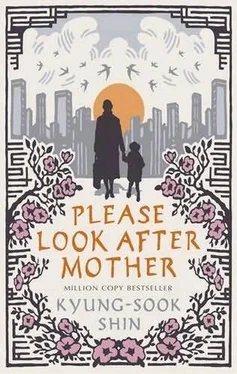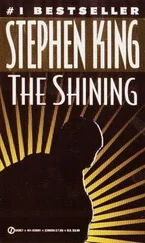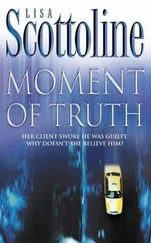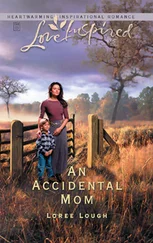You wouldn’t say a word. You didn’t want to know.
“Don’t resent him because he went like that… You’re his brother. And he doesn’t have parents. So you have to visit him. I wish we could rebury him in a good spot in the ancestral graveyard.”
You would yell, “Why do I need to know where that bastard is buried?”
Once, when the two of you were walking along some road, your wife stopped. She asked, “Kyun’s burial spot is nearby; don’t you want to go?” You pretended that you didn’t hear her. Why had you hurt her like that? Until two years ago, on the anniversary of Kyun’s death your wife would make food and take it to his grave. Coming down from the hills, she would smell like soju, her eyes red.
Your wife changed after that happened to Kyun. A formerly happy person, she stopped smiling. When she did smile, the smile quickly disappeared. She used to fall asleep as soon as she lay down, tired from her work in the fields, but now she would spend nights unable to sleep. She was never again able to sleep soundly until your younger daughter became a pharmacist and prescribed her some sleeping pills. Your poor wife, who couldn’t even sleep. Maybe your missing wife still has undissolved sleeping pills stacked in her brain. The old house has been rebuilt twice since Kyun’s death. Each time you rebuilt it, you threw away old things that had been stacked in a corner somewhere. But your wife took care of the nickel basin herself, worried that someone would lay hands on it. Perhaps she feared that, if it was mixed in with all the other items, she might never be able to find it. The nickel basin was the first thing she brought into the tent you lived in while the house was being rebuilt. When the house was done, before she did anything else, she would bring in the nickel basin and place it on a shelf of the new house.
Until your wife went missing, it didn’t cross your mind that your silence about Kyun must have pained her. You thought, What is the point of talking about the past? When your daughter mentioned, “The doctor asked if there was anything that gave Mom a deep shock. Is there something I don’t know about?” you shook your head. When she said, “The doctor recommended that she see a psychiatrist,” you cut her off, retorting, “Who needs a psychiatrist?” You always thought of Kyun as something you had to forget about as you aged, and now it did feel as if you’d forgotten about him. After she turned fifty, even your wife said, “I don’t see Kyun in my dreams anymore. Maybe now he’s able to go to heaven.” And you thought your wife was fine, as you were. Only in recent years did your wife start talking about Kyun again; you’d assumed she’d forgotten all about him.
One night a few months ago, your wife shook you awake. “Do you think Kyun wouldn’t have done it if we’d sent him to school?” Then she whispered, almost to herself, “When I got married, Kyun was the nicest to me… I was his sister-in-law, but I couldn’t even send him to middle school, even though he wanted it so badly. I don’t think he’s been able to go to heaven yet.”
You grunted and turned over, but your wife kept talking. “Why were you like that? Why didn’t you send him to school? Didn’t you feel bad for him when he was crying like that, wanting to go to school? He said he would find a way to continue if we just enrolled him.”
You didn’t want to talk to anyone about Kyun. Kyun was a scar upon your soul, too. Although the apricot tree was gone, you remembered clearly where he had died. You knew that your wife stared at that place sometimes. You didn’t want to pick at your wound. There were worse things in life.
You clear your throat a few times.
Only after your wife went missing did you think that you should have spent some time that night talking candidly about Kyun with your wife. Kyun remained in your wife’s heart as it grew emptier. In the middle of the night your wife would suddenly run out to the bathroom and crouch next to the toilet. She would put her hands out as if she were pushing someone away and scream, “It wasn’t me, it wasn’t me!” If you asked whether she’d had a nightmare, she would blink and stare at you blankly, as if she had forgotten what she was doing. That happened more and more frequently.
· · ·
Why didn’t you think about the fact that your wife had to keep going to the police station about Kyun? That she was rumored to have killed him? Why is it only now that you realize Kyun might have something to do with your wife’s headaches? You should have listened to your wife, at least once. You should have let her say what she wanted to. The years of silence, after you had blamed it on her and didn’t even let her talk about it-that pressure might have pushed your wife toward her pain. More and more frequently, you found your wife standing somewhere, lost. She would say, “I can’t remember what I was going to do.” Even though the headaches were sometimes so bad she could barely walk, she refused to go to the hospital. She insisted that you not tell the children about her headaches. “What’s the point of telling them? They’re busy.”
When they did find out about them, she covered them up, saying, “I had one yesterday, but now I’m fine!” Once, she was sitting up in the middle of the night, and when you made a noise her face turned stone cold and she asked, “Why did you stay with me all these years?” Still, she continued to make sauces and pick wild Japanese plums to make plum juice. On Sundays, she rode on the back of your motorcycle to go to church, and sometimes she suggested going out to eat, saying she wanted to eat food someone else had cooked, at a place that served a lot of panchan. The family discussed consolidating all of the many ancestral rites into one day, but she said that she would do so when the time came for Hyong-chol’s wife to take over the rites. Since she’d done the rites her whole life, she would continue to do them individually while she was alive. Unlike before, however, your wife would forget something for the ancestral-rite table and have to go to town four or five times. You just assumed that this was something that could happen to anyone.

The phone rings at dawn. At this hour? Filled with hope, you quickly pick up the phone.
“Father?”
It’s your elder daughter.
“Father?”
“Yes.”
“What took you so long to answer? Why didn’t you answer your cell?”
“What’s going on?”
“I was shocked when I called Hyong-chol’s house yesterday… Why did you go home? You should have told me. You can’t leave like that and not pick up the phone.”
Your daughter must have just found out that you came home.
“I was sleeping.”
“Sleeping? The whole time?”
“I guess so.”
“What are you going to do there by yourself?”
“Just in case she comes here.”
Your daughter is quiet. You swallow, your throat dry.
“Should I come down?”
Of all the children, Chi-hon is the most energetic in looking for your wife. It’s probably partly because she’s single. The Yokchon-dong pharmacist was the last person to call to say he’d seen someone like your wife. Your son placed more newspaper ads, but there have been no more leads. Even the police said they’d done everything they could, and could only wait for someone to call, but your daughter went from emergency room to emergency room each night, checking on every patient without family.
“No… Just call if you hear anything.”
“If you’d rather not be alone, come right back up, Father. Or ask Aunt to come stay with you.”
Your daughter’s voice sounds strange. As if she has been drinking. It sounds as if she’s slurring her words.
Читать дальше












